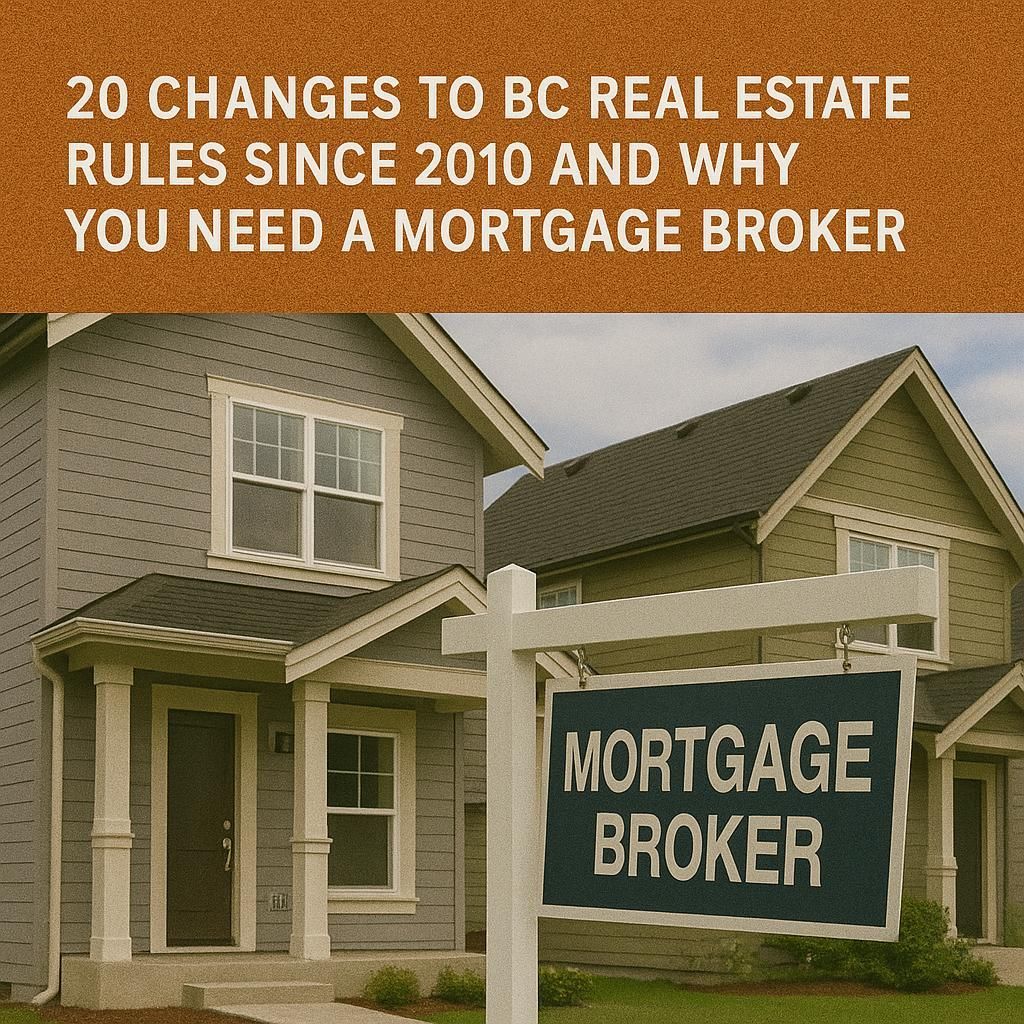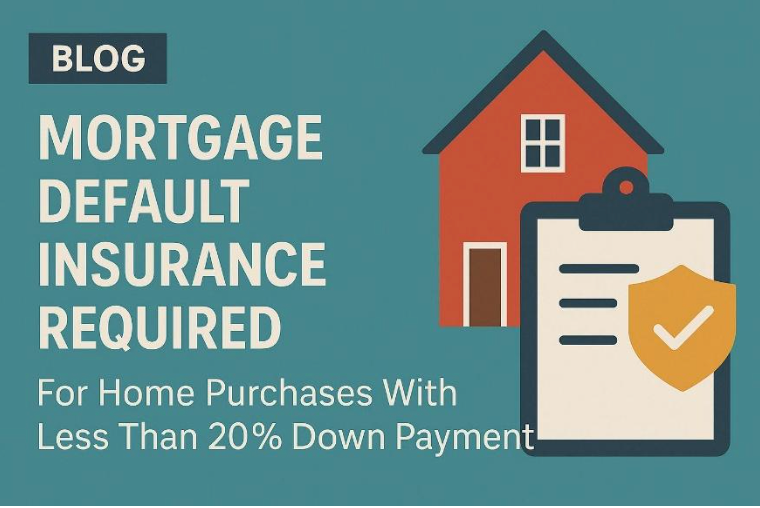Fixed vs. Variable rate mortgages Pros & Cons
As an independent Mortgage Broker, I am often asked “should I choose a fixed or variable rate mortgage”
Buying a home is very exciting, but it can easily be overwhelming.
Understanding how mortgages work is your first step. Education is a huge part of my job, I give people as much information (as you can handle), so you make the best decision regarding a mortgage for your particular circumstance.
When deciding on a mortgage you will need to choose between a variable or fixed rate mortgage. Your income, size of your mortgage, lifestyle and risk tolerance will help you determine which product best suits your particular circumstance.
The key to variable and fixed rates is to understand how interest rates are calculated and how these impact each type of mortgage:
- Fixed rate mortgages (FRM)
provides stability and eases budget anxiety, because it is constant over the deration of the term of the mortgage (i.e. 5 years).
- Fixed rate mortgages are based on the Canadian bond market (the 5 year fixed rates is based on the yield of a 5-year bond). As bond prices rise, fixed rates will also rise and the spread between the two reflects the risk investors are willing to take when they move their money from a secure product, like bonds, to invest in mortgage securities.
- There are times when that spread becomes very wide or very thin—usually a reflection of world events, such as the subprime mortgage crisis of 2008.
- The Fixed Rate Mortgage is recommended for the following reasons:
- Clients are risk averse.
- They have bought a property at the high end of their affordability range.
- Clients are not knowledgeable about borrowing and are more advised to take something secure.
- V ariable rate mortgages (VRM),
(also called a floating or adjustable) is a mortgage where the interest rates can fluctuate during your term.
- That means if the prime rate goes up — based on changes made to the Bank of Canada’s overnight rate — then variable rates will go up. That means your interest rate and mortgage payments could change from month to month
Fixed & variable mortgage rates Pros & Cons
| Fixed mortgage rate (closed) | Variable mortgage rate (closed) | |
| Description | Set for the duration of the mortgage term (i.e. 5 years). Mortgage interest rate and payments are fixed. | Fluctuates with the Bank of Canada rate, known as the ‘prime rate’. Mortgage payments can fluctuate. |
| Pros | ·Can essentially set the payments and forget about it until your term is over, regardless of whether Canadian bonds or interest rates rise or fall.
·Eases budgeting anxiety and offers stability. ·If the difference between the variable & fixed rate is less than 1%, it may be worth paying a premium for the stability protection of a fixed rate. |
·Historically, over the last 25 years variable rates have proven to be less expensive over time.
·Since the current Bank of Canada rate is 0.75% and prime is 2.85% there isn’t a lot of room for interest rates go much lower. ·80% of people break their mortgage* before the term is complete. o Variable rate mortgages typically charge 3 months interest penalty which typically is lower than the Fixed Rate Mortgages *varies depending on lender |
| Cons | ·If the difference between the variable & fixed rate is significant, it may not be worth paying a premium for the stability protection of a fixed rate.
·80% of people break their mortgage* before the term is complete. o Fixed rate mortgages typically charge the greater of: 3 months interest OR Interest Rate Differential *varies depending on lender |
When interest rates change, depending on the lender and the terms of your mortgage, the following scenarios are possible:
·Your payment goes up or down each time Prime rates change. ·Your payment stays the same when Prime rates go down, but increases when market interest rates go up. In this scenario, more of your payment goes toward paying down the principal when the interest rate falls. ·Your payment does not change unless Prime rates increase to a “trigger” point (shown in your mortgage agreement). Only at that point will the lender increase your payment. ·If you choose variable rate OR a term less than 5 years, the Canadian government dictates that you must qualify for your mortgage at the Bank of Canada Benchmark Rate currently 4.64%. This is to ensure you can still afford your mortgage if interest rates increase. Click Here To See The Bank of Canada Benchmark Rate Qualification Index |
According to Robert Abboud, an Ottawa – based CFP and the author of No Regrets: A common sense guide to achieving and affording your life goals , Ram Balakrishnan, blogger, and Dr. Moshe Milevsky, the York university professor whose initial 2001 study became the impetus behind the current belief that you’ll always save with a variable rate mortgage, a variable rate mortgage may not be in your best interest.
According to Milevsky’s 2001 study (and the updated study released in 2008), homeowners who opt for a variable rate mortgage save approximately $22,000 in interest payments over a 15 – year period.
- But context is everything. The study, and its update, examined mortgages between 1950 and 2007. Since the study was published, the spread (otherwise known as the difference between variable and fixed rates) has thinned out.
- Also interest rates, which were consistently falling over the last 25 years, have slowed considerably.
- Add to this the historical response by governments in tough economic times: stimulate spending, which generates inflation. To combat this inflation, governments raise interest rates — sometimes suddenly and ruthlessly — and this has an immediate impact on variable rates (the overall economic condition will eventually impacts fixed rates).
For that reason, Milevsky, and others, have voiced their support for locking – in to a fixed rate. The rationale: any savings you see from currently low variable rates will be eaten up when you’re forced to renegotiate your mortgage in five years. That’s because as rates slowly creep up over the next five years, your monthly payments remain the same — and this results in a larger percentage of your payment going to interest payments, rather than repaying the principal.
To help you decide whether a variable or fixed mortgage is the best option for you, answer the following 4 questions:
- Does the thought of uncertain mortgage interest rates and fluctuating payment amounts keep you up night?
- Do you have a big mortgage? Do you expect to have a big mortgage in five years?
- Would it be virtually impossible to make additional monthly or lump – sum payments against the mortgage?
- Would it be a burden to find an extra $100 or $200 per month for mortgage payments?
If you answered YES to any of these questions, you need to seriously consider a fixed – rate mortgage. Despite the temptation of saving money with a variable rate mortgage, a fixed rate will provide a level of stability and predictability that your situation requires.
Mortgage borrowers need to understand and measure risks when deciding between a fixed-rate mortgage (stability) and a variable rate mortgage (balance between risk & reward).
Besides the Fixed vs Variable rate mortgages, there are many other factors you need to be aware of prior to buying your home.
Let’s have a chat to discuss your next steps to home ownership.








